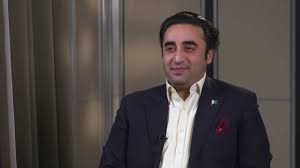Italy launches national hub to fight disinformation

Rome: Italy has launched its national hub to fight disinformation – the Italian Digital Media Observatory – at the University LUISS of Rome as part of a European network of eight national hubs.
The network is part of the European Digital Media Observatory, an EU-funded project that promotes scientific knowledge on online disinformation, advances the development of fact-checking services and supports media literacy programmes.
The Italian observatory will bring together fact-checkers, media practitioners and researchers to fight online disinformation.
“The wave of disinformation seen recently risks to weaken the right to access trustful information and to poison democratic and electoral practices,” Italy’s Foreign Affairs Minister Luigi Di Maio said at the inauguration of the hub.
“It is essential that the fight against disinformation and fake news is not to the detriment of a plural and democratic public debate,” Di Maio added.
The national hubs have the task to monitor and report disinformation campaigns also with the use of artificial intelligence, supporting media organisations and public authorities in exposing them. Each hub will be in charge of organising media literacy activities at the national or multinational level.
“Our strategy has two strands: collaborating with the large digital platforms to prevent the monetization of disinformation content; the creation of a broad European community of experts to limit fake news,” said Giuseppe Abbamonte, director for media policy at the European Commission.
Major platforms should take measures to de-monetise disinformation across their platforms, as part of the EU’s wider bid to clamp down on harmful content online, the European Commission has said.
EU Commission presses platforms to de-monetise disinformation
As part of a wider bid to clamp down on harmful content on the internet, the European Commission has urged major digital platforms to take measures to de-monetise disinformation online.
Gianni Riotta, director of LUISS journalistic school, said the efforts followed a simple logic: “We go to the doctors we trust, the same should apply to news, which should be treated professionally”.
The Italian hub is formed by a consortium that includes the universities LUISS and Tor Vergata, national telecom provider TIM and major media outlets such as the public broadcaster RAI, editorial group GEDI, and daily Corriere della Sera.
“This project gives us the opportunity to think and act at the individual and collective level. The role of us, journalists, is that of not disseminating fake news, of knowing how to spot them and flagging them to citizens,” said Stefania Aloia, vice director of the other leading national daily, la Repubblica.
In May, the European Commission announced the selection of the eight national hubs that are part of the European Digital Media Observatory network. All are close to being fully operational now.
The national hubs will play a key role in monitoring the implementation of the EU Code of practice on disinformation, a set of voluntary measures all major online platforms have subscribed to.
The Commission presented in May a new version of the Code of Practice, which includes stricter rules for algorithmic accountability and a monitoring framework on the platforms’ results.
The freshly published Guidance on Strengthening the Code of Practice on Disinformation illustrates the European Commission’s expectations on the anti-disinformation measures for online platforms. While the Code is non-binding, the measures are likely to become mandatory following the adoption of the Digital Services Act (DSA).
Each national hub will be responsible for one or more EU countries, thus covering Belgium, the Czech Republic, Denmark, Finland, France, Ireland, Italy, Luxemburg, the Netherlands, Poland, Slovakia, Spain, Sweden. Norway, a member of the European Economic Area (EEA), is also covered by the Nordic observatory. The aim of the project is to eventually reach full coverage of all EU and EEA countries.





